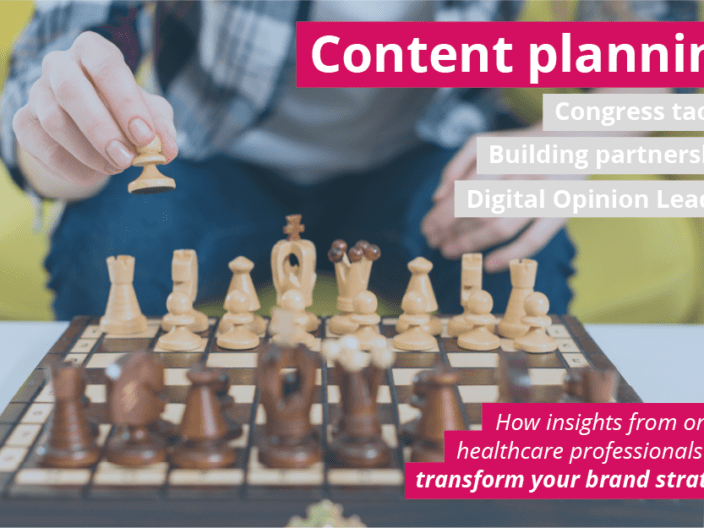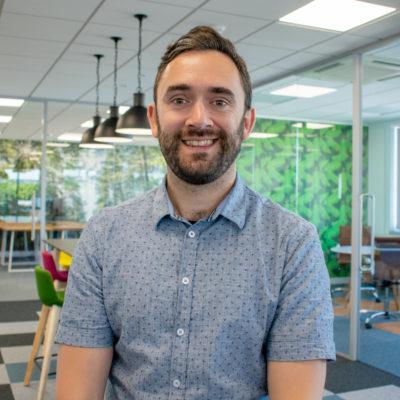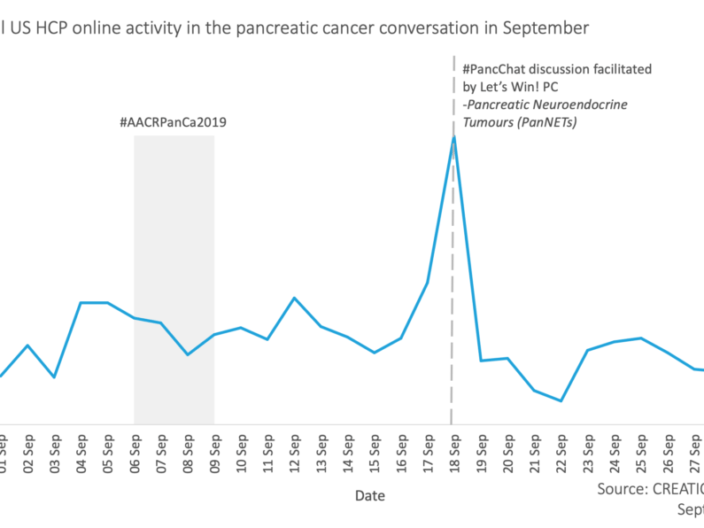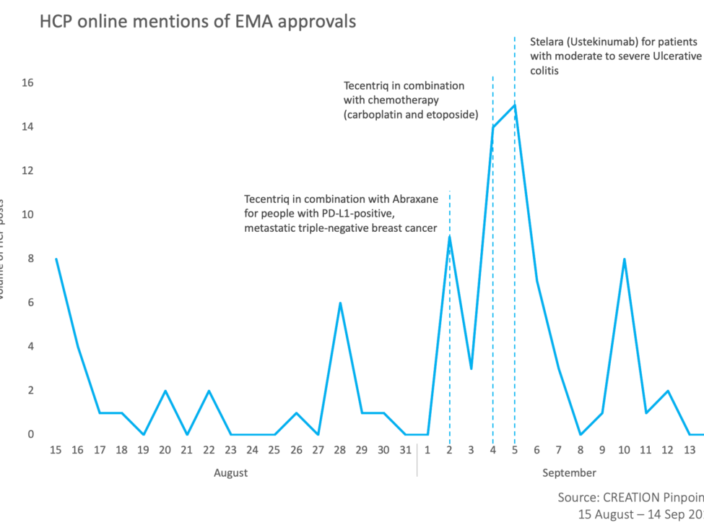As the behaviours of healthcare professionals (HCPs) are changing in the digital age, many pharmaceutical companies are adapting their tactics by learning from their customers’ online conversations.
Discovering how and where HCPs talk about your brand, its competitors and the therapy area reveals insights that can support your content planning, congress tactics and relationship building with health organisations or the HCPs who carry significant influence online.
Before considering each of these topics there is a question to address: why do healthcare professionals use social media?
Why do healthcare professionals use social media?
We interviewed Richard Brady, a colorectal surgeon, who is the founder of an online network of HCPs called #colorectalsurgery, to understand what he sees as the benefits of using social media. Richard told us that social media allows him as a practitioner to learn about innovations almost instantly. Through Twitter for example, he mentioned he could learn from his colleagues and peers across the globe on what they think of new treatments and approaches to practice. From our conversation with Richard and other HCPs leveraging social media we identified 10 reasons why they use social media.
10 reasons why healthcare professionals use social media:
 To create a catalogue of easily accessible knowledge
To create a catalogue of easily accessible knowledge
 To enagage with conference speakers
To enagage with conference speakers
 To enrich the discussion already out there
To enrich the discussion already out there
 To find healthcare professional peers
To find healthcare professional peers
 To get a global perspective
To get a global perspective
 To identify key insights
To identify key insights
 To learn about innovations almost instantly
To learn about innovations almost instantly
 To raise disease awareness
To raise disease awareness
 To share their knowledge with others
To share their knowledge with others
 To take a lead in specific therapy area discussions
To take a lead in specific therapy area discussions
HCPs use different online channels for different purposes. YouTube is often used for practical education; on Instagram we see HCPs engaging more with patients. On Twitter, HCPs share news and engage with peers, asking questions and supporting one another. We recently saw this in action when Jason Starr, a Gastrointestinal Oncologist based in the US, asked peers for help with the next phase of treatment for his patient. In less than four hours he was connected with a clinical trials specialist who gave him the advice he needed.
Within any health topic discussed on social media we have found that HCP mentions make up around 5% of the online conversation. The other 95% comes from patients, organisations, the media and members of the public. Distilling the conversation down to only posts from healthcare professionals presents a unique source of collective intelligence. With CREATION Pinpoint® we are able to track all of these conversations from more than 1.9m HCP profiles worldwide.
Interestingly, we have seen that the proportion of health related conversations by HCPs is on the rise. After analysing the network of HCPs in the North East of England we saw that in 2019 up to 50% of their posts were health related posts, up from 10% in 2013.
Dr. Allyson Ocean describes herself on Twitter as GI Medical Oncologist @nyphospital @meyercancer Co-founder Michael’s Mission @mmfightscrc and Let’s Win @letswinpc, board member @JAJForg -but first a MOM. In this interview at the end of 2019, Daniel Ghinn, CEO, CREATION.co, asked Dr. Ocean about how social media empowers her work as a doctor specializing in pancreatic cancer.
Read the next article in the series:
The next article in this series focuses on how your Content Strategy can be informed and tracked by analysing this HCP conversation online and understanding what HCPs think. Further articles cover congress tactics, relationship building with health organisations and the HCPs who carry significant influence online.

Transforming your pharma brand strategy: Content planning
Read article
 By Luke Wilson
By Luke Wilson 



